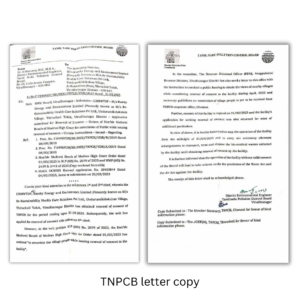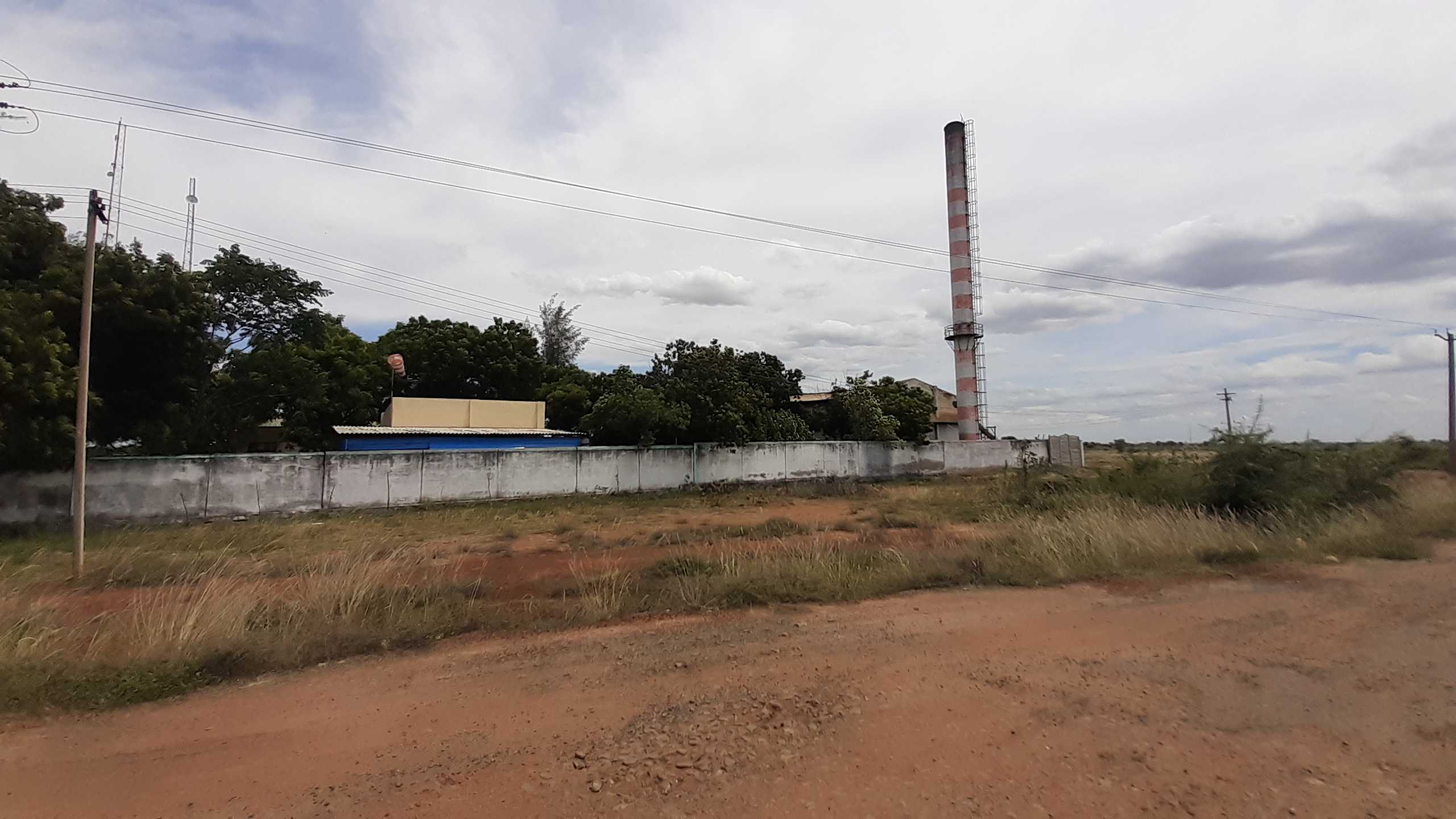 The Tamil Nadu Pollution Control Board (TNPCB) has refused to renew Ramky Energy and Environment Limited’s (Ramky) “consent to operate” for the bio-medical waste incineration facility in A. Mukkulam, Virudhunagar, which expired on 31 March 2023. In a letter addressed to Ramky, the TNPCB has cited the recent court order of the Madurai bench of Madras High Court which mandated that a public hearing be conducted before the renewal of the incineration facility is given by TNPCB. Furthermore, the pollution control board refused to renew the consent to operate for the hazardous waste management facility which sits just beside the incineration facility due to public outrage against its pollution.
The Tamil Nadu Pollution Control Board (TNPCB) has refused to renew Ramky Energy and Environment Limited’s (Ramky) “consent to operate” for the bio-medical waste incineration facility in A. Mukkulam, Virudhunagar, which expired on 31 March 2023. In a letter addressed to Ramky, the TNPCB has cited the recent court order of the Madurai bench of Madras High Court which mandated that a public hearing be conducted before the renewal of the incineration facility is given by TNPCB. Furthermore, the pollution control board refused to renew the consent to operate for the hazardous waste management facility which sits just beside the incineration facility due to public outrage against its pollution.
The Common Bio-Medical Waste Treatment Facility (CBMWTF) run by Ramky in Undurumikidakulam/ A.Mukkulam, collects about 3,831 kg of bio-medical waste daily from 2,646 health care facilities in districts of Madurai, Theni, Viruthunagar, Dindugal and Ramnad. Inside its campus, it has an incinerator and an autoclave machine with a capacity to treat 3,300 kg/day and 1,600 kg/day respectively. However, there has been stiff opposition by the residents of local villages because of the severe air and water pollution from the waste incinerator and its impact on their health. This is echoed by the fact that 12 nearby village panchayats have passed resolutions calling for the facility’s closure.
In response to public petitions, the Virudhunagar District Collector dispatched officials to Ramky’s facility on June 26, 2013. The CBMWTF was closed down on July 4, 2013, after officials discovered that it lacked the necessary licenses from several departments. Ramky, on the other hand, immediately approached the Madurai bench of the Madras High Court and obtained an order to reopen the facility. In 2015, Madurai Meenakshi Mission Hospital’s health camp conducted in the village of Mukkulam, where the incineration facility is located, revealed that 72 of the 159 people screened had kidney problems, 42 had asthma symptoms, and others had developed allergies. These numbers were abysmally high and alarmed the community further. Ironically, in 2016, despite strong opposition, a new facility was opened just beside the biomedical incinerator to handle about 2,40,000 tons of hazardous waste per year.

The local community was further enraged when they found out that both the incineration and the hazardous waste management facilities run by Ramky have repeatedly violated several environmental norms despite being issued repeated warnings and notices by the pollution control board. For example, based on the information obtained through RTIs, the community found out that the Ramky incineration facility had not installed the dioxins and furans Air Pollution Control (APC) devices despite the Bio-medical Waste Management rules 2016, mandating it. Dioxins and furans are highly toxic and can cause reproductive and developmental problems, damage the immune system, interfere with hormones and also cause cancer. Further, it had failed to operationalise the online monitoring system to monitor the outlet flue gas discharges. Ramky had also provided false information to the TNPCB, claiming that there was no human settlement within 3.5 km of the site and no water bodies nearby. However, multiple communities are located within a one-kilometer radius of the facility, and a lake is situated less than 500 meters away. On 19th November 2020, the TNPCB had levied a fine of 3,15,000 INR as environmental compensation for the pollution the company had caused. Its hazardous waste management facility (Tamilnadu waste management Ltd, a subsidiary of Ramky) was also slapped a fine (environmental compensation) of INR 9,20,000 for improper management of hazardous leachate.
Aggrieved by the impunity with which Ramky had operated their treatment plants, the village residents registered mass complaints with the TNPCB during the grievance redressal meeting conducted in March 2023, just before the expiry of Ramky’s license. Their grievances varied from health difficulties to the death of family members as a result of pollution and loss of livelihoods. The Pollution Control Board’s delayed yet critical decision acknowledging the protracted struggle of the villagers and environmentalists has provided considerable (though interim) respite to their fight for justice.
Centre for Financial Accountability is now on Telegram. Click here to join our Telegram channel and stay tuned to the latest updates and insights on the economy and finance.

